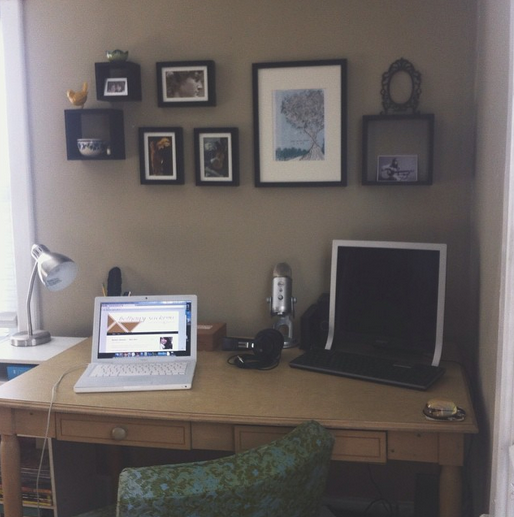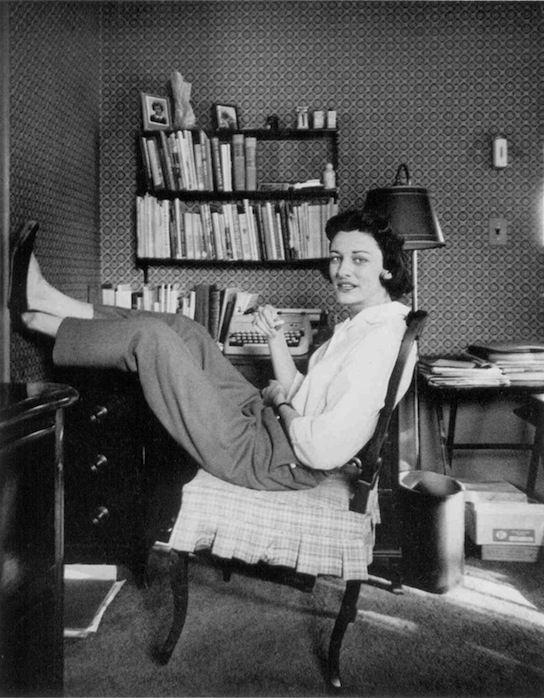At the beginning of 2016, I read a Facebook post by Elizabeth Gilbert about the differences between a hobby, a job, a career, and a vocation. In it, she helps clarify the differences between the four, and how our creativity is impacted by our perceptions by what each of them mean.
That post came along at a critical time in my working life. My husband and I moved to Nashville 18 months prior, and I had been piecing together an income with part-time jobs: first as a maid, then as a maid and a content creator for a small marketing firm, then as a content creator and a florist. I’d been trying to pursue a non-traditional, free-spirited, flexible work-life for myself where my creativity was allowed to flourish and I didn’t have to adhere to a strict, 9-to-5 office job. But I was struggling. Hard.
I was struggling to make ends’ meet, with two part-time jobs with irregular hours and low wages.
I was struggling to balance my work with my personal life, allowing myself time to work AND be creative AND rest, because I was constantly worried about earning enough to live.
I was struggling to feel creative in my personal time, because I was giving so much of my creative energy to my jobs as a content creator and a florist, I had very little left over for writing and art.
I was struggling to prioritize things; I wanted to build my creative work independently so that it was separate and self-sustaining from my work income so that I could be financial stable, which required a lot of planning and odd side hustles (for instance, I set up an Etsy account and sold my baby clothes, of all things, to save money toward selling my art online (supplies + setup + packaging + shipping = $$$$) and buying a new laptop to replace my decrepit 2008 laptop. This was actually profitable; I earned close to $400 in 4 months…but out of desperation had to use that money to pay bills because my jobs weren’t paying me enough. Blergh. Back to square one.)
I was constantly sidetracked by the financial reality of what I was doing, but at the heart of my struggle was this other issue: I believed that my job had to directly relate to my vocation in order for it to have meaning. I believed that in order for my work to matter and to avoid being a “sell out” I had to have a super creative work life, I had to reject a traditional 9-to-5 job, I had to be independent.
But I didn’t feel independent. I felt trapped by fear. I was totally imprisoned by this notion of what my career and my vocation had to look like in order for it to be successful. I was running myself ragged trying to make my life fit this ideal. I was exhausted, broke, anxious, and at times straight up miserable. I was afraid that if my job and career didn’t ultimately support my vocation, then I wasn’t the kind of artist and writer that my peers and old college profs and publishers and twitter followers could respect. I agonized about whether I would ever fulfill my dreams to be a published author. I worried that working a traditional job wouldn’t allow me to be myself every day and that would deplete me creative energy. I stressed that I would never make enough money to pay my bills and put food on the table, let alone do things like pay off my student debt, or even buy a house and have kids someday.
Reading Elizabeth Gilbert’s post set me free, especially this part:
“My career is dependent upon others; my vocation is entirely my own. The entire publishing world could vanish, and books could become obsolete, and I would still be a writer — because that’s my vocation. That’s my deal with God. You do not need to make money from your vocation in order for it to have meaning. […] Vocation has nothing to do with money, with career, with status, with ambition. I often see people corrode their vocation by insisting that it become a career — and then making career decisions that destroy their vocation. […] The day that I feel my career is destroying my vocation, I will quit my career and go get a job, so that I can protect my vocation. But I will never quit my vocation.”
I needed to be told that whether or not I ever make money from it, my creativity still matters. And I needed to be reminded that being a diligent and capable employee in a 9-to-5 job is not an insult or a detraction from my work, it is not “selling out,” it is not wrong to make my financial needs and my family goals a priority.
“I believe there is great dignity and honor to be found in having a job. A job is how you look after yourself in the world. I always had a job, or several jobs, back when I was an unpublished, aspiring writer. Even after I’d already published three books, I still kept a regular job, because I never wanted to burden my creativity with the responsibility of paying for my life. Artists often resent having jobs, but I never resented it. Having a job always made me feel powerful and secure and free. It was good to know that I could support myself in the world, and that I would never starve, no matter what happened with my creativity.”
I am not less of an artist because I work a traditional 9-to-5 job.
I think I’m still recovering from all the junk posted by authors and bloggers that tell us that to “live a good story” and be a “real” artist, we have to quit our jobs and only “do what we love.” For a long time we’ve been told that in order to live fully into our creative gifts we have to put everything else at risk. Whether or not it is overtly said, the implication from these messages is clear, that our jobs have to be awesome and relate directly to our vocation and we have to change the world with it, otherwise we’re just another face in the crowd, another worker bee in the hive of capitalism.
And because of messages like that, I’ve spent most of the past seven years since I graduated from college feeling like a failure, because I can’t afford to be that carefree with my career and my finances and just quit everything. I have $80K+ in student debt; I will probably have a day job until the day I die. Coming to terms with that reality made me realize just how classist and elitist that whole concept of “quit everything & do what you love” is, because very few people can afford to live like that. And I began to notice that all the people who were touting this as the The One True Way to Creative Success were making a hell of a lot of money off of people’s insecurity. I can’t be convinced that this kind of classism is a fulfillment of their vocation, #sorrynotsorry.
Which is why Elizabeth Gilbert’s post matters so much to me. Because here she is, a famous author who has achieved what most of us understand as “success” – she wrote a bestselling memoir and Julia Roberts portrayed her in the film adaptation, and she’s bffs with Oprah and she makes money writing books for a living. But she’s not guarding the gates of creativity, she’s opening them wider to welcome everyone in. She’s saying there are many ways to be faithful to our vocations, and her way is only one.
And thanks to her wisdom and generosity, I finally feel at peace with being a writer who works a 9-to-5. In fact, I just started a new job working for a corporate company and I feel really fucking proud of it. I’m earning a salary and I get health benefits and a 401k and I can see the light at the end of a long tunnel of financial distress HALLELUJAH PRAISE THE LORD. And I feel like I can be faithful to my job, and still be faithful to my vocation, rather than being forced to choose one or the other. Because lots of writers and artists like me have done it before, I am not the first nor the last. And I feel like the job I do still has value, even if it isn’t the same as publishing a book or being an award-winning journalist or a profitable artist.
I’m looking after myself in the world, and that gives me dignity and confidence and joy.
And for the other writers and creative people out there who are agonizing over what you’re doing with your lives:
Take pride in how hard you’ve worked – on your vocation, yes, but in your day-to-day jobs that pay your bills and sustain your life, no matter how monotonous or menial the tasks. Your vocation is not a thing that can be taken away from you. The gate is open for you to keep pursuing a full, creative life. Be faithful to your path. We believe in you.


